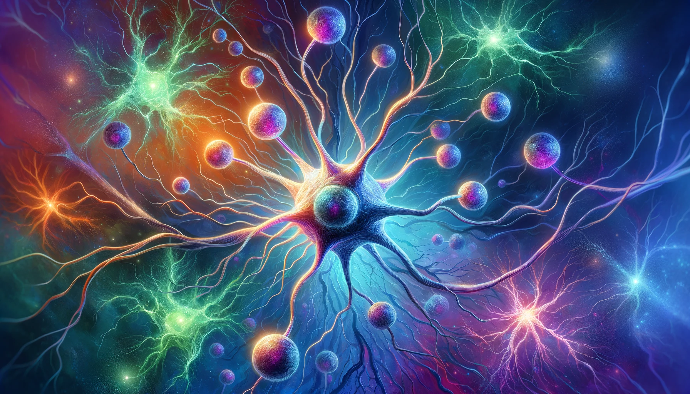
In the expansive field of neuroscience, Brain-Derived Neurotrophic Factor (BDNF) stands out as a pivotal player, crucial for the growth, survival, and plasticity of neurons. Recent research has shed light on the role of BDNF antibodies, highlighting their significance in understanding brain function, development, and disorders. This article aims to explore the burgeoning field of BDNF antibodies in neuroscience, elucidating their implications, applications, and potential therapeutic avenues.
BDNF
A Key Player in Neurobiology Brain-Derived Neurotrophic Factor (BDNF) is a neurotrophin that plays a fundamental role in neuronal development, synaptic plasticity, and neuroprotection throughout the central nervous system (CNS). It exerts its effects by binding to its high-affinity receptor, TrkB, promoting neuronal survival, dendritic growth, and synapse formation. Dysregulation of BDNF signaling has been implicated in various neurological and psychiatric disorders, including depression, Alzheimer's disease, and schizophrenia.
BDNF Antibodies
Unraveling Neural Dynamics BDNF antibodies offer a unique window into the intricate workings of the brain, allowing researchers to probe BDNF expression, distribution, and function with unparalleled precision. Through immunohistochemical and biochemical techniques, BDNF antibodies enable the visualization and quantification of BDNF levels in different brain regions, shedding light on its role in neuronal development, synaptic plasticity, and neurodegeneration. Moreover, BDNF antibodies have emerged as valuable tools for studying BDNF-TrkB signaling pathways and their modulation in health and disease.
Implications in Neurological Disorders
The dysregulation of BDNF expression and signaling has been implicated in the pathophysiology of various neurological and psychiatric disorders. BDNF antibodies facilitate the investigation of BDNF alterations in these conditions, offering insights into disease mechanisms and potential therapeutic targets. For instance, reduced BDNF levels have been reported in depression, while increased BDNF expression is associated with neuroprotective effects in neurodegenerative diseases such as Alzheimer's and Parkinson's disease. BDNF antibodies serve as indispensable tools for elucidating these complex interactions and guiding the development of targeted interventions.
Diagnostic and Therapeutic Applications
In addition to their role in basic research, BDNF antibodies hold promise for diagnostic and therapeutic applications in neurological disorders. Detection of BDNF levels in patient serum or cerebrospinal fluid using immunoassays provides valuable biomarkers for disease diagnosis, prognosis, and treatment monitoring. Furthermore, therapeutic strategies aimed at restoring BDNF signaling, such as BDNF mimetics or gene therapy approaches, are under investigation for their potential to mitigate neuronal dysfunction and promote brain repair in neurodegenerative disorders.
Future Directions and Challenges
While BDNF antibodies offer unprecedented insights into brain health and disease, several challenges remain to be addressed. Standardization of assay protocols, validation of antibody specificity, and elucidation of BDNF isoform-specific effects are paramount for advancing our understanding of BDNF biology. Moreover, innovative approaches, including the development of BDNF-targeted imaging probes and precision medicine interventions, hold promise for personalized diagnosis and treatment in neurological disorders.
In conclusion, BDNF antibodies represent invaluable tools in unraveling the complexities of brain function, development, and disorders. By harnessing the specificity and sensitivity of BDNF antibodies, researchers and clinicians can deepen our understanding of BDNF biology, identify novel therapeutic targets, and pave the way for innovative diagnostic and treatment strategies in neurological and psychiatric disorders.